by Eric Blume
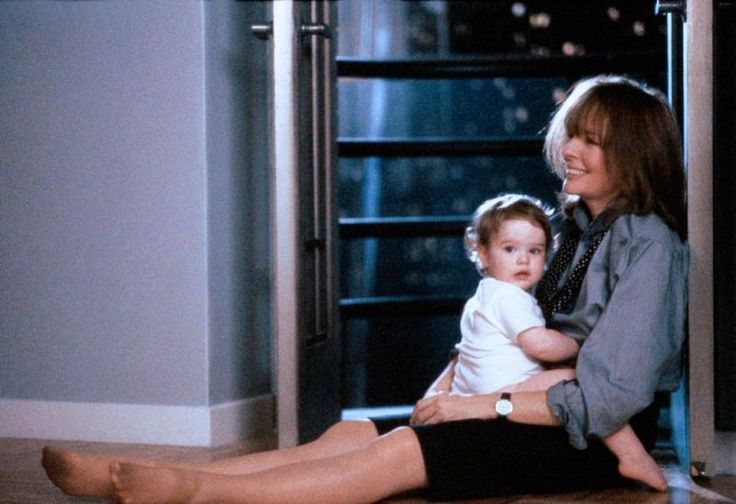
Baby Boom, directed by Charles Shyer with a script by him and his then-wife Nancy Meyers, encapsulates 1987 beautifully. From young James Spader's Wham!-like hair to Keaton's fashions to the dated woman-in-the-workplace-can-she-have-it-all plot, it could be a time capsule film for the year and its essence. While we're celebrating 1987, this film couldn't be a better example of exactly where we were.
And yes, Baby Boom is a mercilessly commercial enterprise, engineered with cliche characters and "adorable" cutaway shots to the child inherited by the "Tiger Lady", J.C. Wiatt, played by Diane Keaton. I can't defend this movie as a work of fine cinema, but I've returned to it over a dozen times for the sheer joy in Keaton's peerless performance...
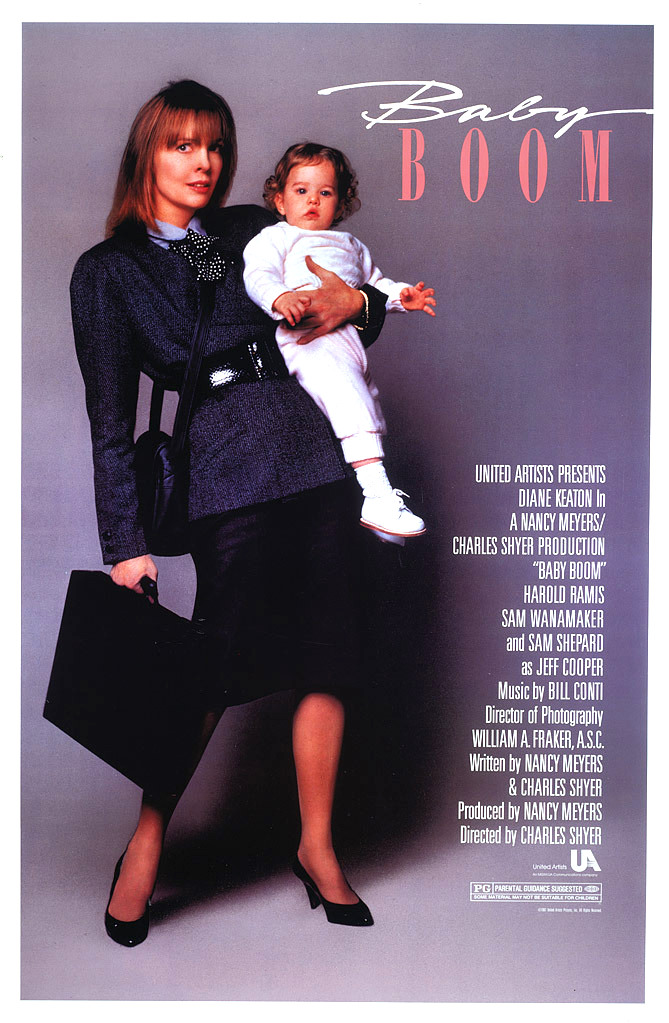
We don't get movies like Baby Boom much anymore: mainstream movies built as star vehicles around a female comedy star, produced purely to feature the actress being funny and inventive. A few Melissa McCarthy films come to mind, and we go into them wanting to love them and accept them for what they are, but we're left with stinkers like Tammy or The Boss. (I'm excluding her ensemble movies like Spy and Bridesmaids, which are among the best comedies of the decade.)
The ambition on a movie like Baby Boom may be low, but the film delivers in providing Keaton with both a full character and a series of set pieces that allow her to double-down on her impeccable timing. In the early scenes where J.C. inherits the young baby, Keaton does a varation on tired "don't know what do with a baby" tropes that shouldn't work but do thanks to her singular approach into the moments. Keaton's face and body as she inserts a rectal thermometer proves priceless upon each viewing.
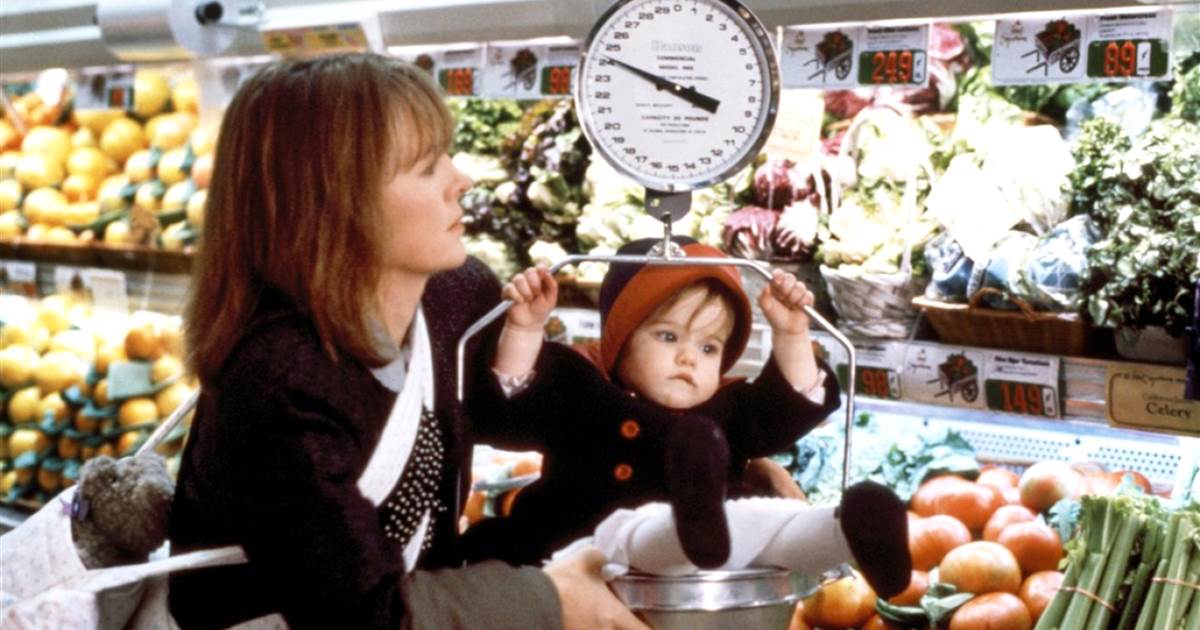
There's a certain pleasure in watching a great comic actor elevating these kind of stretches in movies. Goldie Hawn does it with her early boot camp moments in Private Benjamin as well (also a Charles Shyer movie). You may be groaning at the hoary retread in the script, but when these actresses go at these scenes as if they're brand new, and find a new way into the moment and do things nobody else would have thought of, you can get a kind of joy that you don't get from more highbrow efforts. It's movie pablum, but when done by somebody with great skill, it can lift your spirits.
Keaton tears into every scene in Baby Boom, and her depth as an actress keeps the movie rooted in a crucial reality. She earns her Tiger Lady name just by the way she prowls into her law offices, and she's nobody's fool. You believe she's a lawyer, well aware that there's someone waiting to swoop in and replace her. She calibrates the widening of J.C.'s life perspective with delicate care, without losing the core of the character. When the story switches midway from Manhattan to Vermont, Keaton takes on a romantic leading-lady glow. Her rapport with Sam Shepard in these scenes is marvelous, and she softens in front of us. And when she returns to the city, and has a private moment with herself in the mirror when her former co-workers make her their offer, she brings all the strands of J.C. together with dynamism and force. Keaton understands what she has to deliver in a movie like this: a full-blown comic creation who has some texture and substance.
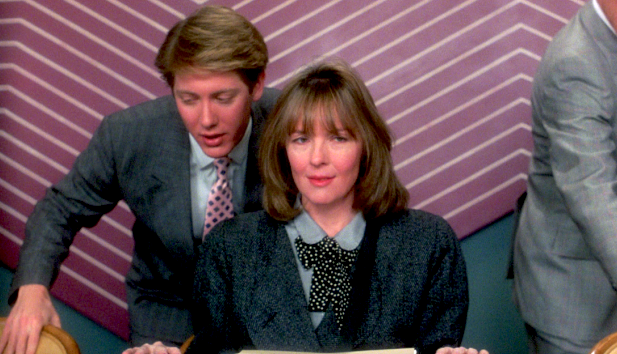
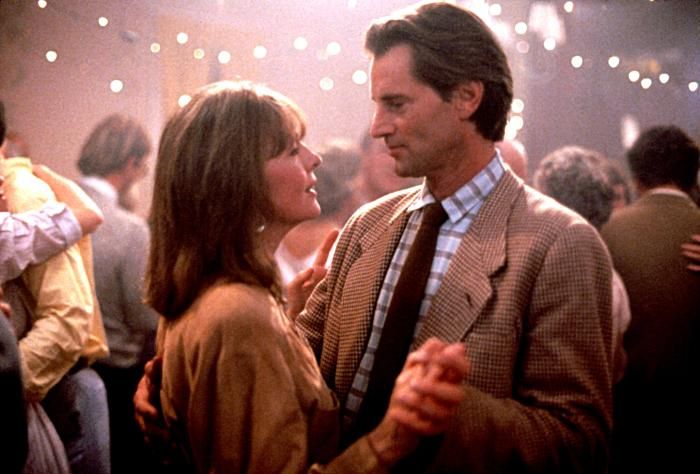
Keaton has one particularly glorious scene, when her plumber visits her crumbling house in Vermont, that soars on the actress' inspired imagination. The scene is a pleading comedy monologue about a city person not being able to make it in the country, but Keaton plays it from a true place: this woman, whose spirit was always uncrushable, is being broken. She's cold, lonely, and sexless, and she pours it onto the most random person imaginable. The climb that Keaton does on this monologue is pretty much a textbook example of how to build a piece of writing, culminating in a full-blown faint. I can't imagine any actress before 1987 or since who could execute that scene better than Keaton.
Baby Boom, for me, is what the Over & Over series at this site is about: the guilty pleasure that you might not be able to defend to your cinephile friend, but the happiness it brings is all that matters.
Previously in Over & Overs...
- Bringing Up Baby (1938) by Cláudio
- Anatomy of a Murder (1959) by Michael
- Young Frankenstein (1974) by Ginny
- Moonstruck (1987) by Deborah
- Indiana Jones and the Last Crusade (1989) by Lynn
- My Girl (1991) by Camilla
- Sister Act (1992) by Kyndall
- The Hudsucker Proxy (1994) by Mark
- Sense & Sensibility (1995) by Cláudio
- To Wong Foo, Thanks for Everything Julie Newmar (1995) by Chris
- Sugar & Spice (2001) by Spencer
- Marie Antoinette (2006) by Cláudio
- Julie & Julia (2009) by Ginny
- Moonrise Kingdom (2012) by Ginny